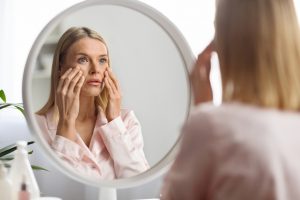Erectile dysfunction (ED) is a common medical condition that affects men of all ages, but it’s often misunderstood and stigmatised. It can be a source of embarrassment and frustration for those who experience it, leading to a reluctance to seek help or discuss it openly. This article aims to shed light on erectile dysfunction by exploring its causes, treatments, and the importance of seeking support and understanding.
Causes of Erectile Dysfunction
Understanding the underlying causes of ED is crucial for effective treatment. ED can result from a variety of physical, psychological, or lifestyle factors, including:
Physical Factors: these factors encompass chronic conditions like diabetes, heart disease, hypertension, and obesity. Additionally, neurological disorders, hormonal irregularities, and anatomical problems can also be underlying contributors to erectile dysfunction.
Psychological Factors: anxiety, depression, stress, and relationship problems can lead to psychological ED. The mental state plays a significant role in sexual function.
Lifestyle Factors: habits such as smoking, excessive alcohol consumption, and drug abuse can play a role in the development of erectile dysfunction. Additionally, leading a sedentary lifestyle and making poor dietary choices can exert a similar impact on this condition.
Medications: some specific drugs, particularly those prescribed for high blood pressure, depression, and prostate issues, can lead to side effects that manifest as erectile dysfunction.
Age: as men get older, the risk of ED increases due to age-related changes in blood flow and hormonal balance.
Treatment Options for Erectile Dysfunction
ED is normally an easily treatable condition. There’s also a range of options depending on the underlying cause and individual preferences. Here are some common approaches:
Lifestyle Changes: addressing underlying lifestyle issues, such as quitting smoking, reducing alcohol intake, and improving diet and exercise habits, can make a significant difference in ED.
Medication: the most well-known is Viagra (sildenafil), which enhances blood flow to the penis. Other options include tadalafil tablets, vardenafil, and avanafil. These medications work for many men but may have side effects or contraindications, so a doctor’s consultation is essential.
Hormone Therapy: hormone replacement therapy may be recommended if low testosterone levels are the cause of ED.

Psychological Therapy: Counselling or therapy can be valuable, especially when ED is rooted in psychological factors like anxiety or depression.
Vacuum Erection Devices: these are mechanical apparatuses that generate a vacuum around the penis, facilitating the influx of blood into the organ and aiding in sustaining an erection.
Penile Implants: for severe cases of ED that don’t respond to other treatments, surgical penile implants can be an option.
Natural Remedies: some men find relief through natural remedies like acupuncture, ginseng, or L-arginine supplements, but the effectiveness of these treatments varies from person to person.
The Importance of Seeking Support and Understanding
It’s vital for individuals experiencing ED to seek both medical and emotional support. Here are some key points to consider:
Seek Professional Help: don’t hesitate to consult a healthcare provider. They can determine the underlying cause of ED and provide guidance on the most appropriate treatment.
Open Communication: discussing ED with your partner is essential. Open and honest conversations can strengthen your relationship and reduce the emotional burden of ED.
Reducing Stigma: understanding that ED is a common medical condition can help reduce the stigma associated with it. It’s not a sign of weakness or failure but a treatable condition.
In conclusion, erectile dysfunction is a prevalent condition that can affect men physically and emotionally. Understanding its causes, seeking appropriate treatment, and addressing the emotional aspects of ED are essential steps towards improving one’s quality of life and overall well-being. By reducing the stigma surrounding ED and fostering open conversations, we can help those affected by this condition receive the support they need and deserve.





